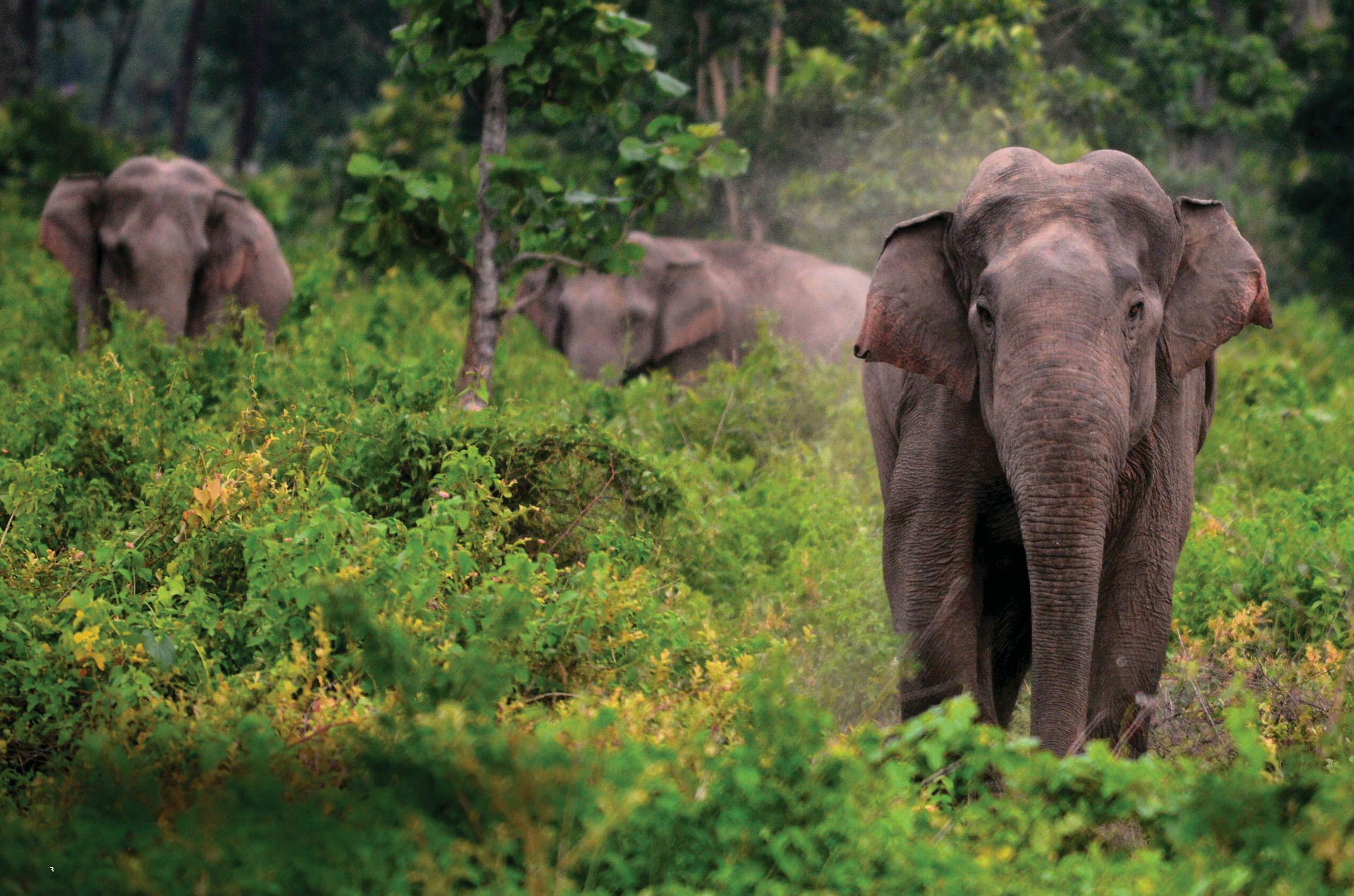
ELEPHANTS ARE valued more in India than all other animals put together," says Anish Andheria, CEO of Wildlife Conservation Trust. "Lord Ganesha, the most worshipped and revered Hindu God, is half-human and half-elephant."
Sadly, revered status isn't keeping these animals safe. Elephants were declared the National Heritage Animal of India in 2010 and granted Schedule 1 status - the highest protection level in the country, on a par with tigers. But elephants and people are frequently coming into contact, leading to horrific flashpoints of violence in which both are losing their lives. "Around 1,400 human and 300 elephant casualties occurred in India due to human-elephant conflict between 2018 and 2020," Andheria explains, the figure not including captive elephants.
Asian elephants (Elephas maximus) are listed as Endangered on the IUCN's Red List. Their numbers have declined by at least 50 per cent over the past three generations, largely due to habitat loss.
India is currently home to about 27,000 elephants, found in 17 states, including Arunachal Pradesh, Uttar Pradesh and West Bengal. While conflict between elephants and people is often associated with the African species, and more attention in India is paid to issues around tigers, leopards and other big cats, human-elephant conflict (HEC) is at crisis levels in the country.
As in Africa, the key issue is the lack of space. India recently overtook China as the most populated country in the world and is now home to 1.43 billion people, one sixth of the global population. About 65 per cent of the country's people live in rural areas. Industrial projects, such as mines and dams, along with roads and the exploitation of forests for agriculture, firewood or livestock-grazing, have also depleted natural elephant habitat.
This story is from the October 2023 edition of BBC Wildlife.
Start your 7-day Magzter GOLD free trial to access thousands of curated premium stories, and 9,000+ magazines and newspapers.
Already a subscriber ? Sign In
This story is from the October 2023 edition of BBC Wildlife.
Start your 7-day Magzter GOLD free trial to access thousands of curated premium stories, and 9,000+ magazines and newspapers.
Already a subscriber? Sign In

Jump Around - Bagheera Kiplingi - The acrobatic spider with a predilection for veggie food
Spiders eat flies, right? everyone knows that the 45,000 or so spiders in the world are all obligate carnivores, more or less – eating other animals, mainly invertebrates. Nature, however, loves an exception, and one particular spider missed out on that ecological memo. It goes by the wonderful scientific name of Bagheera kiplingi, and its claim to fame is that its diet is – at least mostly – vegetarian.

Female of the Species - Zebras - A strong sisterhood is key to staying safe
Zebras are masters of confusion. Their collective noun is ‘a dazzle’, which is fitting since their bodies and behaviour have been surprising scientists for centuries.

See It, Save It? - Wildlife tourism can be a powerful ally in protecting nature - but it can also harm it. We weigh up the pros and cons.
The sums of wildlife travel aren’t as simple as more tourists equals happier nature. How much did my visit really contribute to the conservation of Lady Liuwa and her habitat – and was that outweighed by carbon emissions from my flights? Did my presence disturb the animals’ natural behaviour more than it reduced the threat of poaching or benefited local communities?The question of whether wildlife travel is, on balance, good for wildlife is a complex one – and there’s no simple answer.

Can Your Really Offset Emissions? - Planning an overseas wildlife-watching trip entails facing some inconvenient truths
Imagine (or maybe you don't need to) that you hanker after the safari trip of a lifetime in sub-Saharan Africa. A 17-day tour beginning at the iconic Victoria Falls, passing through Zimbabwe, Zambia, Malawi and Tanzania, taking in some of the continent’s most wildlife-rich national parks, and ending on the lush island of Zanzibar.

Metamorphosis: a life-changing event
WITH EVOLUTIONARY BIOLOGIST JV CHAMARY

New series for BBC One: Asia
Settle in this autumn for a new natural-history extravaganza on BBC One and iPlayer: the longawaited Asia, presented by Sir David Attenborough.

Loss of Antarctic sea ice could impact seabird food supply
Albatrosses and petrels may be forced to fly further to feed

Tarsiers in trouble
Urgent action is needed to ensure survival of the Yoda-like primate

SNAP-CHAT
Chien Lee on shrew loos, rogue drones and being rained out of bed

VISIONS OF NATURE
The winners of the Wildlife Artist of the Year competition 2024, from David Shepherd Wildlife Foundation